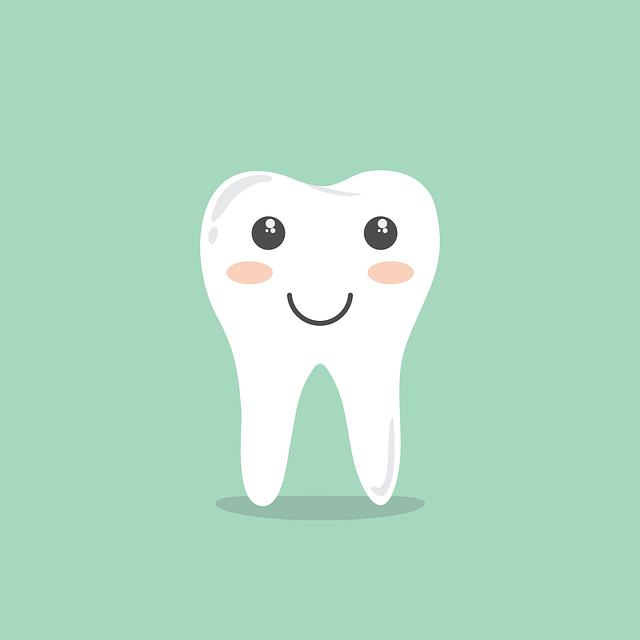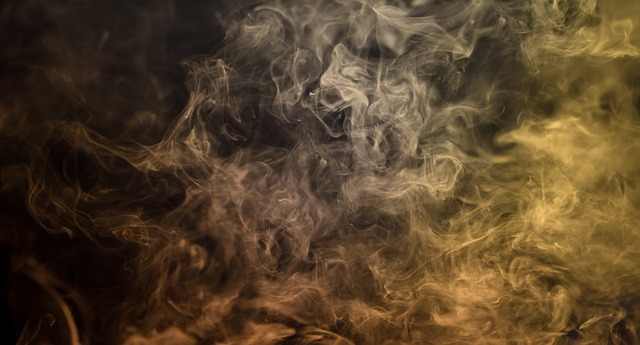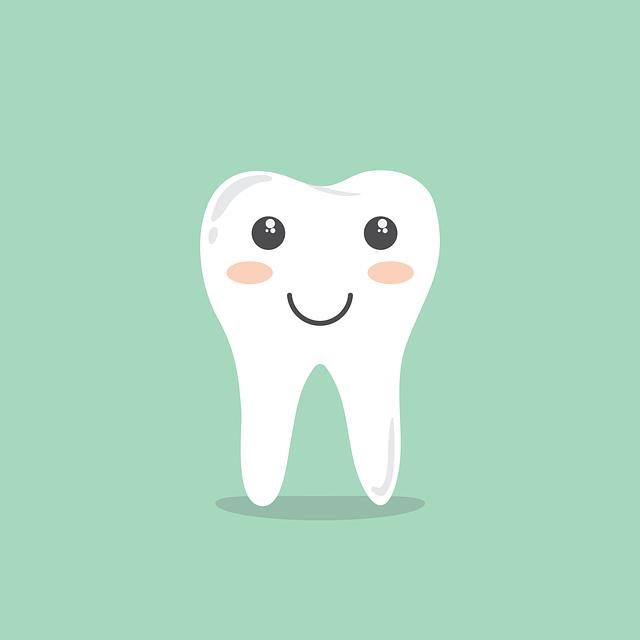Is Vaping Bad After Tooth Extraction? Expert Opinions
Have you recently undergone a tooth extraction and find yourself wondering whether it’s safe to indulge in your vaping habit? As vaping continues to gain popularity, it’s important to address the potential effects it may have on the healing process after dental surgery. In this article, we will explore expert opinions to shed light on the question: Is vaping bad after tooth extraction? By delving into the realm of dental knowledge, we aim to provide you with a clear and confident understanding of whether vaping poses any risks to your oral health during this crucial recovery period. So, let’s get straight to the facts and uncover what the experts have to say.
1. Understanding the Impact: How Does Vaping Affect Tooth Extraction Recovery?
When it comes to recovering from a tooth extraction, it’s important to consider the impact that vaping can have on the healing process. While vaping is often seen as a healthier alternative to smoking, it can still have negative effects on the recovery of your extraction site. Here are some key points to understand:
1. Delayed Healing: Vaping introduces chemicals and toxins into your body, which can impair the healing process. Nicotine, a common ingredient in vape juices, restricts blood flow and reduces the oxygen supply to the extraction site, slowing down the formation of new tissues and delaying the healing of the wound.
2. Increased Risk of Dry Socket: Dry socket, a painful condition where the blood clot that forms after extraction becomes dislodged or dissolves, is a common complication. Vaping can increase the risk of developing dry socket due to the suction created when inhaling. The forceful action of vaping can disrupt the blood clot, leading to delayed healing, severe pain, and the need for additional treatment.

2. Expert Insights: Dental Professionals Weigh In on Vaping and Post-Extraction Healing
When it comes to vaping and its impact on post-extraction healing, dental professionals have valuable insights to offer. Their expertise sheds light on the potential risks and considerations patients should keep in mind. Here’s what these experts have to say:
1. Delayed Healing: Vaping has been linked to delayed healing in post-extraction sites. The chemicals present in vaping liquids can impair the body’s natural healing process, leading to complications and prolonged recovery time. It is crucial for patients to understand that vaping can negatively affect the healing of extraction sites.
2. Increased Infection Risk: Dental professionals warn that vaping increases the risk of infection after tooth extraction. The aerosol particles produced by vaping devices can compromise the body’s ability to fight off bacteria, making the extraction site more susceptible to infection. Patients who choose to vape should be aware of this heightened risk and take necessary precautions to maintain oral hygiene.

3. Unveiling the Risks: Potential Consequences of Vaping After Tooth Extraction
Vaping has gained popularity in recent years as an alternative to smoking traditional cigarettes. While it may seem harmless, it is important to be aware of the potential consequences of vaping, especially after undergoing a tooth extraction. Here are some risks associated with vaping that could impact your healing process:
- Delayed healing: Vaping introduces harmful chemicals and toxins into your body, which can impair the natural healing process. Nicotine, one of the main components in e-cigarettes, constricts blood vessels and reduces blood flow to the surgical site. This can lead to delayed healing and result in a longer recovery time.
- Infection: Vaping exposes the surgical area to heat and vapor, creating an environment that is conducive to bacterial growth. The moisture from the vapor can also increase the risk of infection. Infections can cause pain, swelling, and potentially lead to more severe complications if left untreated.
It is crucial to prioritize your oral health and follow the instructions provided by your dentist or oral surgeon after a tooth extraction. This includes avoiding vaping and other activities that may hinder the healing process. By being mindful of these potential risks, you can ensure a smoother and quicker recovery, allowing your mouth to heal properly and minimize any complications.

4. Optimizing Recovery: Best Practices for Oral Health Following Tooth Extraction
After a tooth extraction, it is crucial to optimize your recovery to ensure proper healing and minimize discomfort. By following these best practices for oral health, you can promote a speedy recovery and reduce the risk of complications:
- Manage pain and swelling: Take prescribed pain medication as directed by your dentist to alleviate discomfort. Apply ice packs to the affected area for the first 24 hours to reduce swelling.
- Maintain oral hygiene: Gently brush your teeth, avoiding the extraction site, within 24 hours of the procedure. Rinse your mouth with warm saltwater several times a day to keep the area clean and promote healing.
- Avoid disturbing the extraction site: Refrain from touching the area with your tongue or fingers, as this can interfere with the healing process. Avoid using straws, smoking, or spitting forcefully, as these actions may dislodge the blood clot and delay healing.
- Follow a soft food diet: Eat soft, nutritious foods such as soups, yogurt, and mashed potatoes for the first few days after the extraction. Avoid hard, chewy, or spicy foods that can irritate the surgical site.
Monitor for signs of complications: Keep an eye out for excessive bleeding, severe pain, or swelling that worsens after a few days, as these may indicate an infection or other issues. Contact your dentist immediately if you experience any of these symptoms.

5. The Bottom Line: Should You Vape After Tooth Extraction? Expert Recommendations
After a tooth extraction, it is essential to take proper care of your oral health to ensure a speedy recovery. When it comes to vaping after a tooth extraction, it is advisable to exercise caution and follow expert recommendations. Here are a few key points to consider:
1. Consult with your dentist: Before making any decisions about vaping after a tooth extraction, it is crucial to consult with your dentist. They will evaluate your specific situation and provide personalized recommendations based on factors such as the complexity of the extraction, your overall oral health, and any potential risks.
2. Avoid vaping immediately after the extraction: It is generally recommended to avoid vaping for at least the first 24 hours after a tooth extraction. This is because the suction created while vaping can dislodge the blood clot that forms in the socket, leading to a condition called dry socket, which can be extremely painful and delay the healing process. It is important to give your mouth enough time to heal before resuming vaping.
6. Exploring Alternatives: Healthier Options for Nicotine Consumption During Recovery
Nicotine addiction can be a challenging habit to break, especially during the recovery process. However, there are healthier alternatives available that can support individuals in their journey towards a nicotine-free life. Exploring these options can provide a more sustainable and less harmful way to satisfy nicotine cravings. Here are some alternatives to consider:
- Nicotine replacement therapy (NRT): NRT products such as nicotine patches, gum, inhalers, lozenges, and nasal sprays can help manage withdrawal symptoms by providing a controlled dose of nicotine without the harmful chemicals found in cigarettes. These products are available over-the-counter and can be used as part of a comprehensive recovery plan.
- E-cigarettes: While not risk-free, e-cigarettes can serve as a less harmful alternative for individuals who are unable to quit nicotine entirely. These electronic devices heat a nicotine-containing liquid into a vapor that is inhaled. It is important to note that the long-term effects of e-cigarette use are still being studied, and caution should be exercised.
- Natural alternatives: For those seeking a nicotine-free option, there are natural alternatives that can help alleviate cravings. Some individuals find success with herbal cigarettes, which are made from a variety of herbs and do not contain tobacco or nicotine. Additionally, exploring healthier habits such as exercise, mindfulness, and engaging in hobbies can also assist in overcoming nicotine addiction.
It’s crucial to consult with a healthcare professional or addiction specialist before pursuing any alternative nicotine consumption methods. They can provide personalized guidance and support based on individual needs. Remember, everyone’s recovery journey is unique, and finding the right approach may require some trial and error. By exploring alternatives, individuals can take proactive steps towards a healthier, nicotine-free lifestyle.
7. Final Thoughts: Making Informed Choices for a Speedy and Successful Tooth Extraction Recovery
When it comes to recovering from a tooth extraction, making informed choices is crucial for a speedy and successful recovery. By following these tips, you can ensure that you are taking the necessary steps to promote healing and minimize discomfort.
1. Follow post-operative instructions: Your dentist or oral surgeon will provide you with specific post-operative instructions tailored to your situation. These instructions may include guidelines for oral hygiene, pain management, and dietary restrictions. It is essential to follow these instructions carefully to promote healing and prevent complications.
2. Manage pain and swelling: After a tooth extraction, it is common to experience pain and swelling. To alleviate discomfort, your dentist may recommend over-the-counter pain relievers or prescribe medication. Applying ice packs to the affected area can also help reduce swelling. Be sure to consult your dentist before taking any medication or using ice packs.
3. Maintain oral hygiene: Keeping your mouth clean is crucial for preventing infections and promoting healing. Your dentist may advise you to avoid rinsing or spitting forcefully for the first 24 hours after the extraction. After that, gently rinsing your mouth with warm saltwater can help keep the extraction site clean. However, be cautious not to disturb the blood clot that forms in the socket.
4. Choose the right foods: Eating soft and nutritious foods can help you avoid discomfort and aid in the healing process. Opt for items such as yogurt, mashed potatoes, and soup. Avoid hard, chewy, or spicy foods that can irritate the extraction site. Also, avoid using a straw, as the suction can dislodge the blood clot and delay healing.
5. Take it easy: Rest and allow your body to recover. Avoid strenuous activities that can increase blood flow and cause bleeding at the extraction site. Engaging in gentle activities like reading or watching movies can help distract you from any discomfort you may be experiencing.
Frequently Asked Questions
Q: Is vaping bad after tooth extraction?
A: According to expert opinions, vaping is not recommended after a tooth extraction.
Q: Why is vaping discouraged post tooth extraction?
A: Vaping can hinder the healing process and increase the risk of complications such as infection and dry socket.
Q: What is dry socket?
A: Dry socket is a condition where the blood clot that forms after tooth extraction dislodges or dissolves, leaving the underlying bone and nerves exposed. It can cause severe pain and delay the healing process.
Q: How does vaping affect the healing process?
A: Vaping involves inhaling and exhaling aerosolized substances, which can irritate the socket where the tooth was extracted. This irritation can disrupt the formation of a stable blood clot, leading to a higher chance of developing dry socket.
Q: Does vaping have any other negative effects on oral health?
A: Vaping has been linked to various oral health issues, including gum inflammation, dry mouth, and an increased risk of tooth decay. These factors can further complicate the healing process following a tooth extraction.
Q: Are there any alternatives to vaping after tooth extraction?
A: Yes, there are alternatives to vaping that are considered safer during the healing period. Experts recommend avoiding smoking altogether, including e-cigarettes, as well as refraining from using straws and consuming hot or carbonated beverages.
Q: How long should one wait before vaping after tooth extraction?
A: It is generally advised to wait until the extraction site has fully healed before resuming vaping. This typically takes around 7-10 days, but it is important to consult with your dentist or oral surgeon for personalized advice.
Q: Can vaping affect the success of dental implants?
A: While there is limited research specifically on vaping and dental implants, it is generally advisable to avoid any potentially harmful substances, including vaping, before and after implant surgery. This is to ensure optimal healing and reduce the risk of complications.
Q: What steps should be taken to promote proper healing after tooth extraction?
A: Following tooth extraction, it is crucial to adhere to the post-operative instructions provided by your dentist or oral surgeon. This typically includes maintaining good oral hygiene, avoiding smoking or vaping, eating soft foods, and taking any prescribed medications as directed.
Q: Should I consult my dentist before resuming vaping after tooth extraction?
A: Yes, it is highly recommended to consult with your dentist or oral surgeon before resuming vaping after tooth extraction. They can evaluate your individual healing progress and provide specific guidance tailored to your needs.
In Retrospect
In conclusion, when it comes to the question of whether vaping is bad after tooth extraction, expert opinions provide valuable insights. While there is a lack of comprehensive research on this specific topic, it is generally advised to avoid vaping following a tooth extraction. The potential risks associated with vaping, such as decreased blood flow and delayed healing, make it a less than ideal choice during the crucial recovery period. Furthermore, the negative impact of nicotine and other harmful substances found in e-cigarettes on oral health cannot be overlooked. Therefore, to ensure optimal healing and minimize complications, it is recommended to abstain from vaping after tooth extraction. As always, consulting with your dentist or oral surgeon will provide personalized guidance based on your specific situation.





